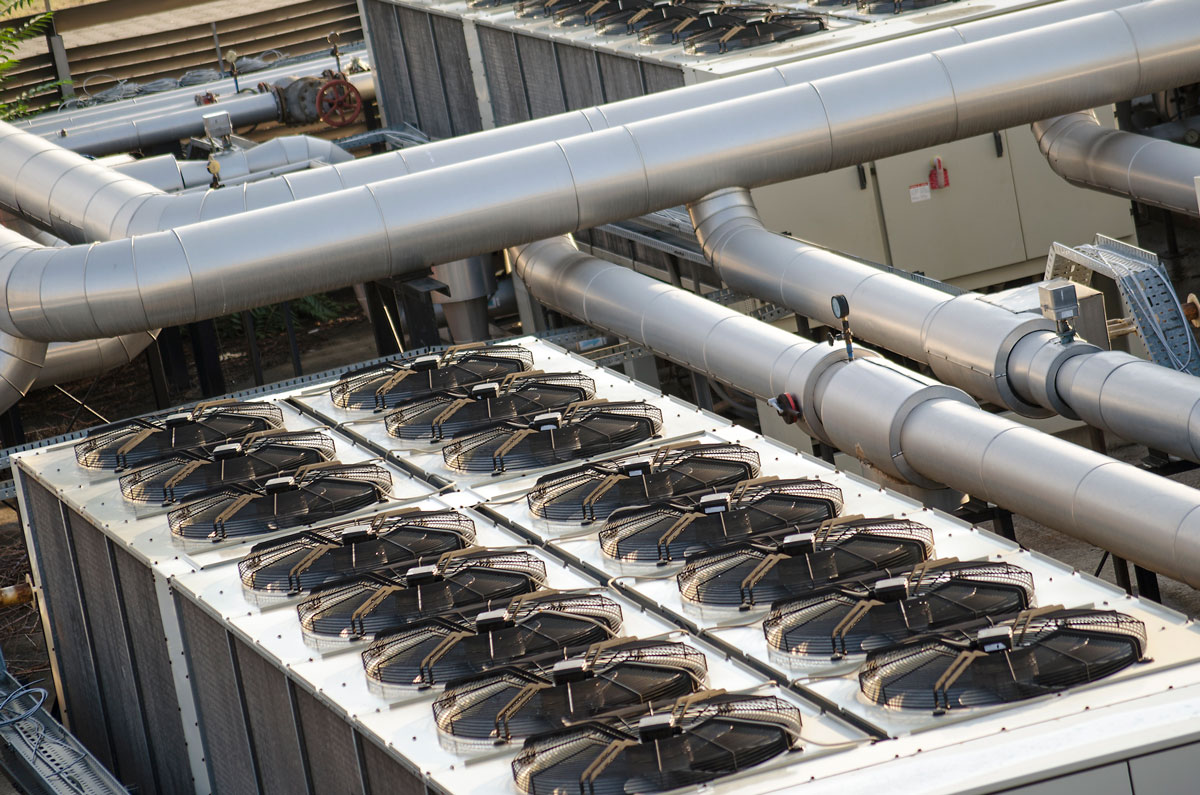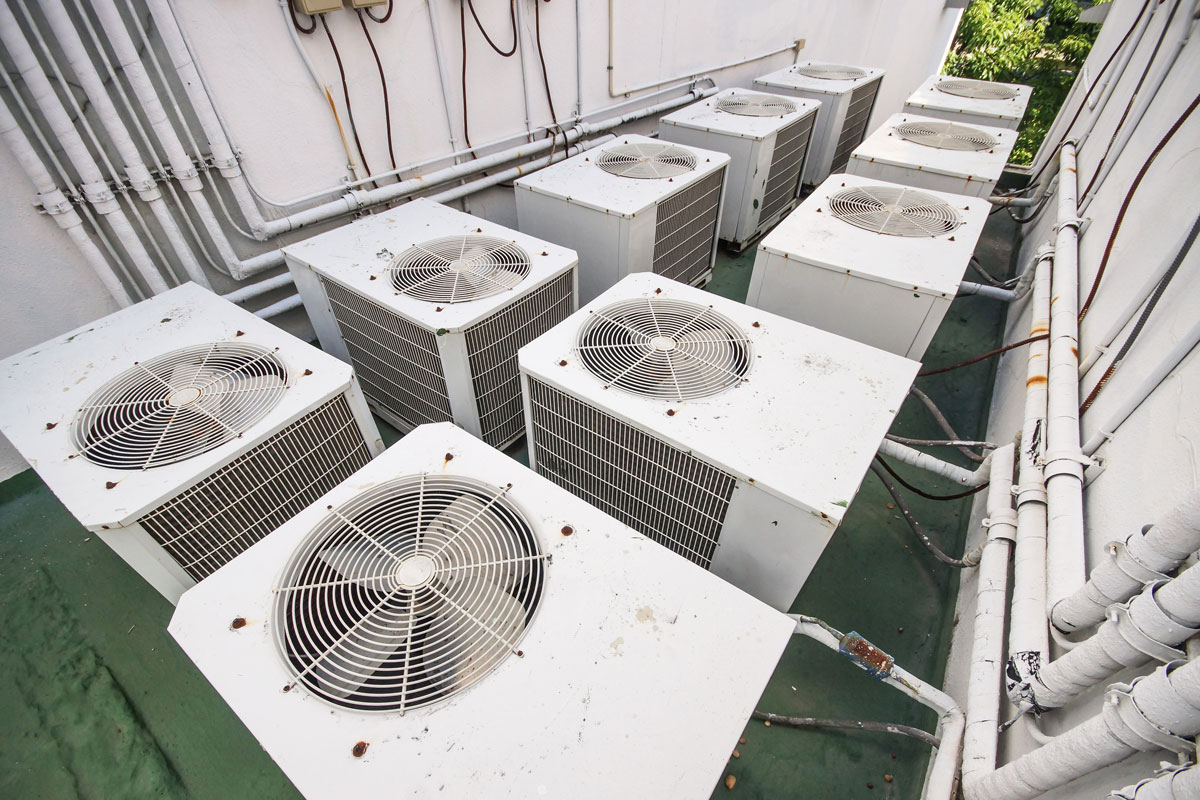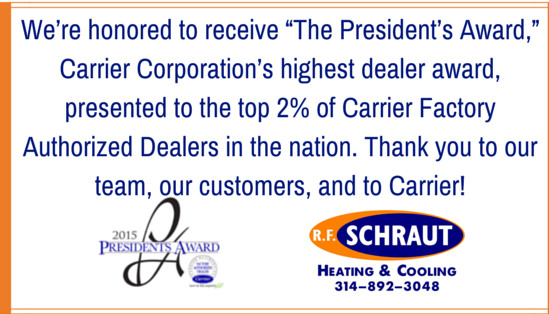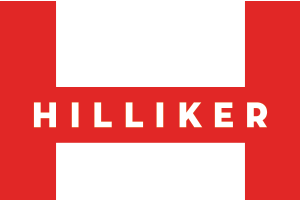HVAC comprises some of a building’s most vital and expensive systems. HVAC inspector Brian Schraut shares what to ask before making a purchase.
St. Louis Entrepreneurs: Do you know what you’re buying?
 Successful commercial investors (and their brokers) are averse to surprises. There’s too much on the line to rush into a decision without as much information as possible. And it’s not just about the money. It’s about quality of life, peace of mind, and future flexibility.
Successful commercial investors (and their brokers) are averse to surprises. There’s too much on the line to rush into a decision without as much information as possible. And it’s not just about the money. It’s about quality of life, peace of mind, and future flexibility.
And few elements of a building are as nuanced—and costly—as an HVAC system. Not only that, a broken AC unit in the middle of a St. Louis summer can put a property owner into crisis mode faster than just about anything!
For commercial properties, in particular, there’s a lot to know. That’s why, in addition to your regular building inspector, you may want to hire an HVAC specialist. We’ll help you:
- Get out ahead of future problems
- Check what building inspectors can’t
- Give you ammunition to negotiate a better deal
Here are some of the questions we try to answer before you make your investment.

Can the HVAC handle the building?
If you have ever purchased a furnace or air conditioner for your home, you likely evaluated the unit you bought based on “square footage.” You asked, “How much space are we filling with how much cool or warm air?” Then, “What size unit will we need to purchase for the space?”
However, in commercial real estate, there’s a lot more to consider. In addition to the square footage, you have to take your business’s needs into account.
For example, imagine you’re buying a space that you plan to use for a retail business. At peak hours, you may have as many as fifty shoppers.
The retail business that occupied the building before you may have had the perfect HVAC setup for their needs. But if they only had a few people in the space at a time, the system won’t work for you.
Similarly, you may need to use less than the current setup provides. I recently helped a painting store evaluate its HVAC systems. When they moved in, their utility bills were through-the-roof expensive.
They had (and needed) a lot of space, but they used most of it to store paint and supplies from floor to ceiling—and the ceilings were very high. The rest was a retail space that only saw a few contractors at a time.
I helped them divide the spaces into two different zones to maximize efficiency, resulting in significant savings.
So, when you’re preparing to purchase a building, explain your business model to your HVAC inspector thoroughly. That person will help you evaluate the current system in light of that information. He or she will also let you know if you’ll need to upgrade or replace the current system based on your business needs.
Will the HVAC system last?
The first thing any inspector will check is the age of the furnace and air conditioner. The national average lifespan of an HVAC unit for a residence is fifteen years, but it’s only ten years for a commercial building.
Also, any units manufactured before 2010 may still use R22 freon, which is no longer produced. If you need to buy freon for an older air conditioner, you have to get it on the used market. As of the publication of this article, we’re still not sure what that means for prices.
Another thing an inspector will want to find out (this is something you can do, too) is what the maintenance history of each unit is. If you see multiple repairs for a single unit, especially if it’s for the same problem, you may be able to negotiate a credit for its replacement.
But HVAC specialists are especially good at inspecting out-of-season units. We have access to tools and training that general inspectors typically don’t.
We get into the nitty-gritty and look at each functioning component. We can check if the furnace has a crack in the heat exchanger. Or, for an AC unit, we can check refrigerant levels and look for leaks, or tell you if the coil has suffered hail damage.

Is your HVAC system efficient?
Just because someone has spent money in the past to get the right HVAC in a building doesn’t mean they’ve done the work to keep things running efficiently.
For example, I inspected a building where the seller told the buyer a particular building only had two air conditioners. I discovered four—plus an automated system the owner had installed but never learned how to use. Rather than figure out the automated system, the owner just lived with the two working units.
This was a big win for the buyer. They suddenly had two extra AC units, plus I could teach them how to use the automatic controls.
During an HVAC inspection, we may be able to point out opportunities for greater efficiency as well. Buyers can factor these ideas into their plans.
For example, uneven temperature through the building may be a problem with the ductwork. Aerosealing®, which seals every joint, will take care of the issue and lower your utility bills.
You may also want to add economizers into your HVAC system. On days between 40° and 60° F, large and well-sealed buildings will run air conditioning. But economizers will pump in the cool, low-humidity air from the outside, saving you money.
Is your HVAC system safe?
For those of us in the St. Louis area, it’s useful to know that Spire doesn’t require gas inspections for commercial properties. That means if there’s a gas leak in your system, no one is going to check it by default.
You need to ask for this extra service. Gas lines are safer than ever, but a gas leak is not something you want to discover accidentally.
Get it checked.
Additionally, proper ventilation will differ depending on your business model. I’ll trust you know your industry well enough to be aware of your needs. But you’ll likely need an HVAC specialist to tell you if the current setup will work for your business.
One of my favorite examples involves a 5000 square-foot space I inspected that was great for the business it housed previously. However, the buyer was an auto mechanic whose primary business was race cars.
With all of that exhaust, he wanted to know if the building would vent the carbon monoxide properly.

How do you know if you need an HVAC inspector?
With experience extending back to 1985, Hilliker brokers know what experts you need—and when you need them. When you find yourself in a position where it makes sense to hire an HVAC inspector, ask for a list of resources.
Brokers don’t technically make “recommendations,” but they know who has done good work in the past and who might be available for your project.
And who knows—maybe I’ll get to meet you!
Brian Schraut has spent his life in his family’s business, R.F. Schraut Heating & Cooling, an Air Comfort Service Company, founded in 1982. You can learn more about Brian and his services here.

